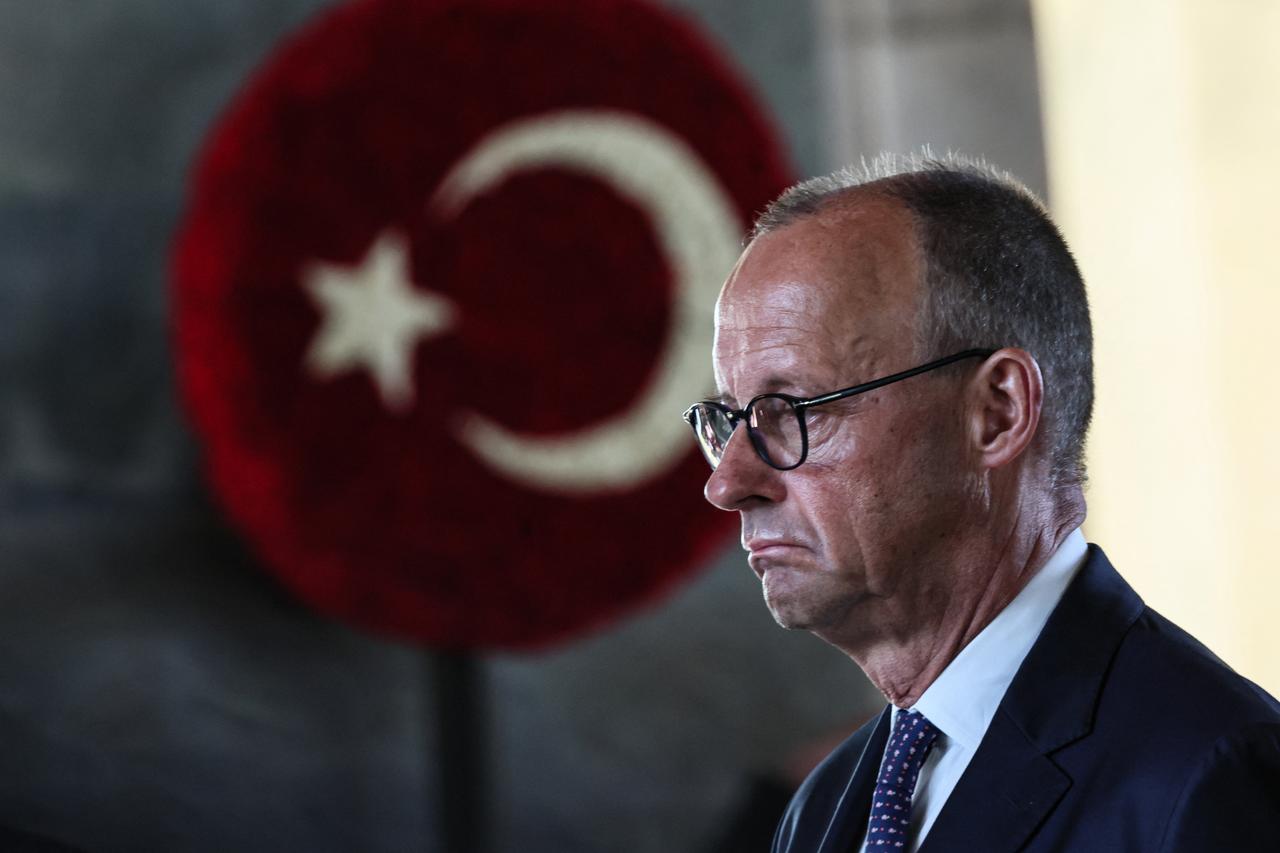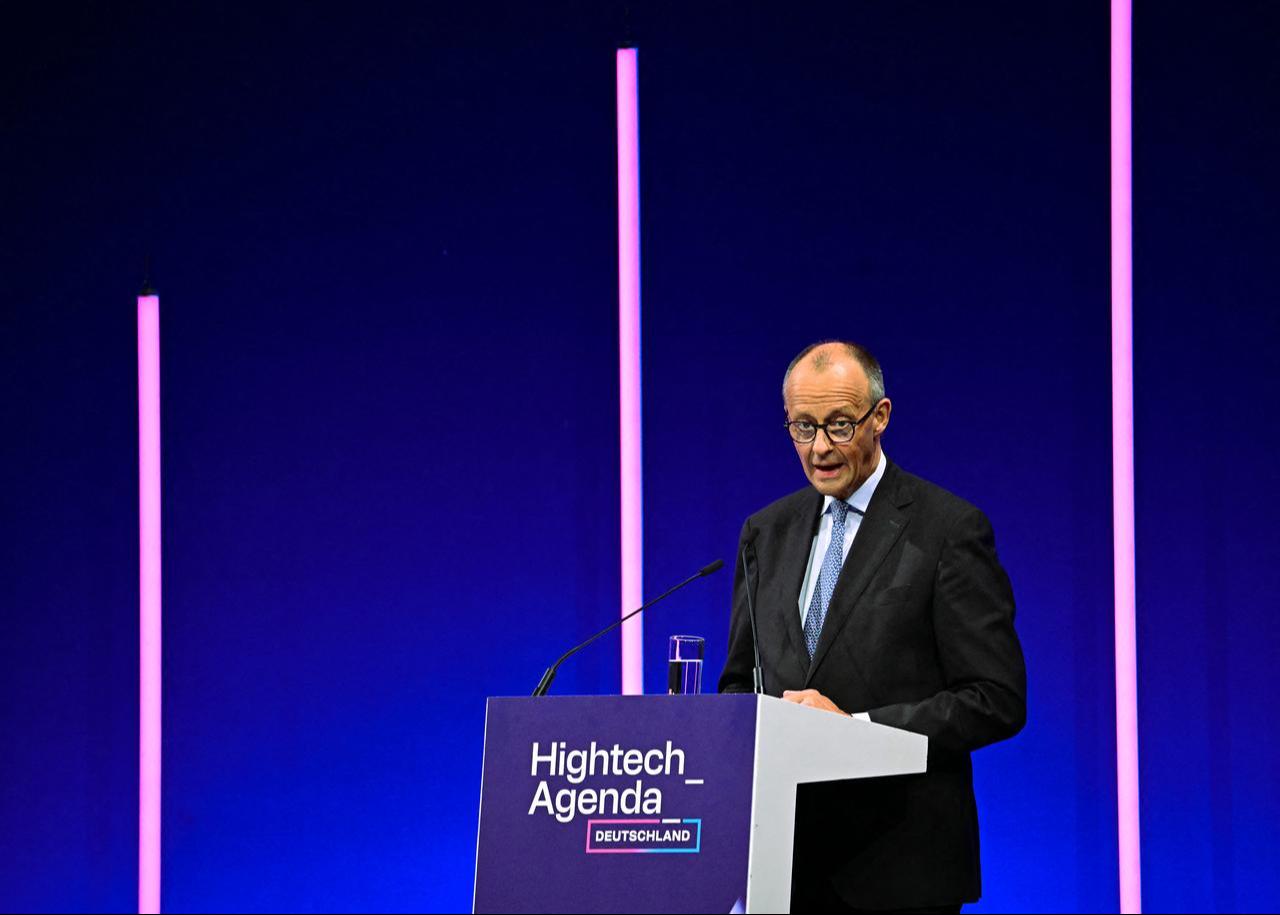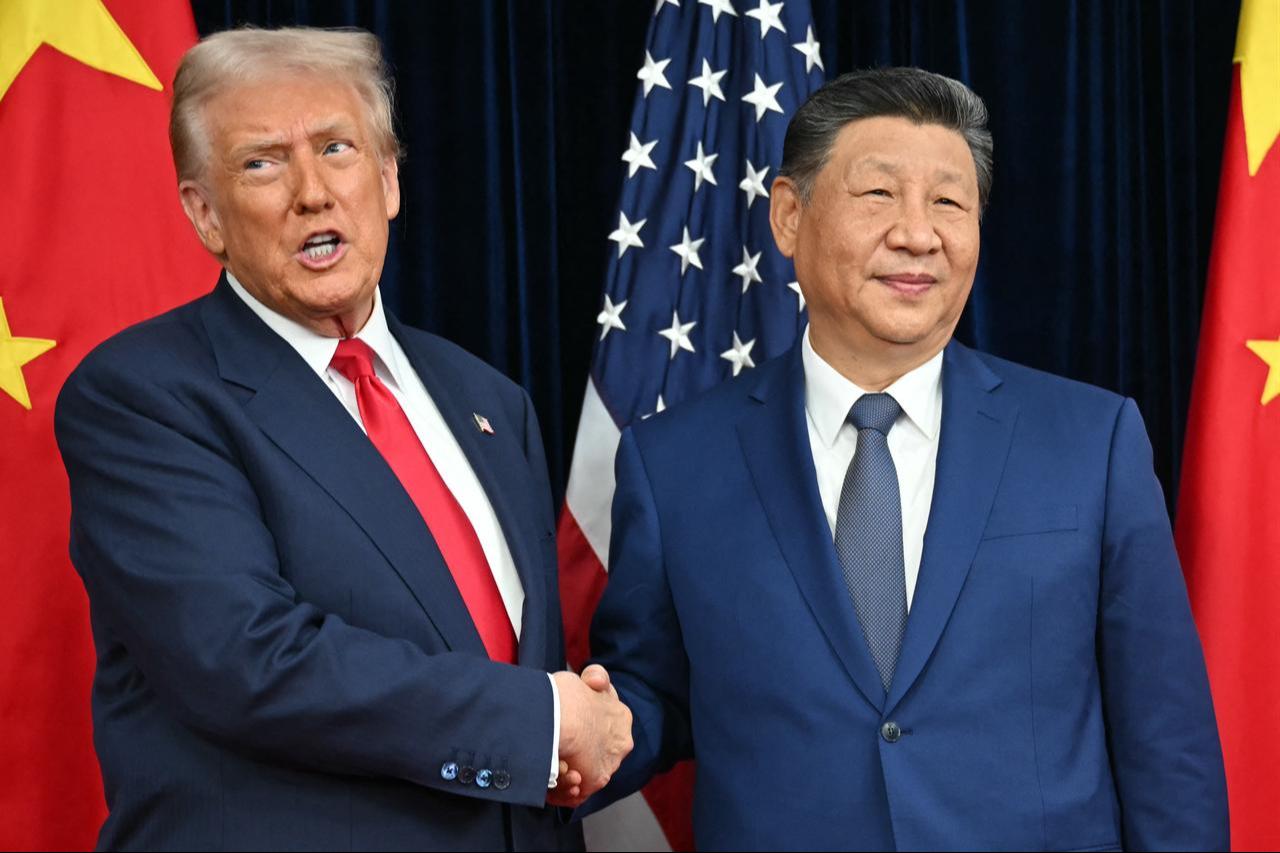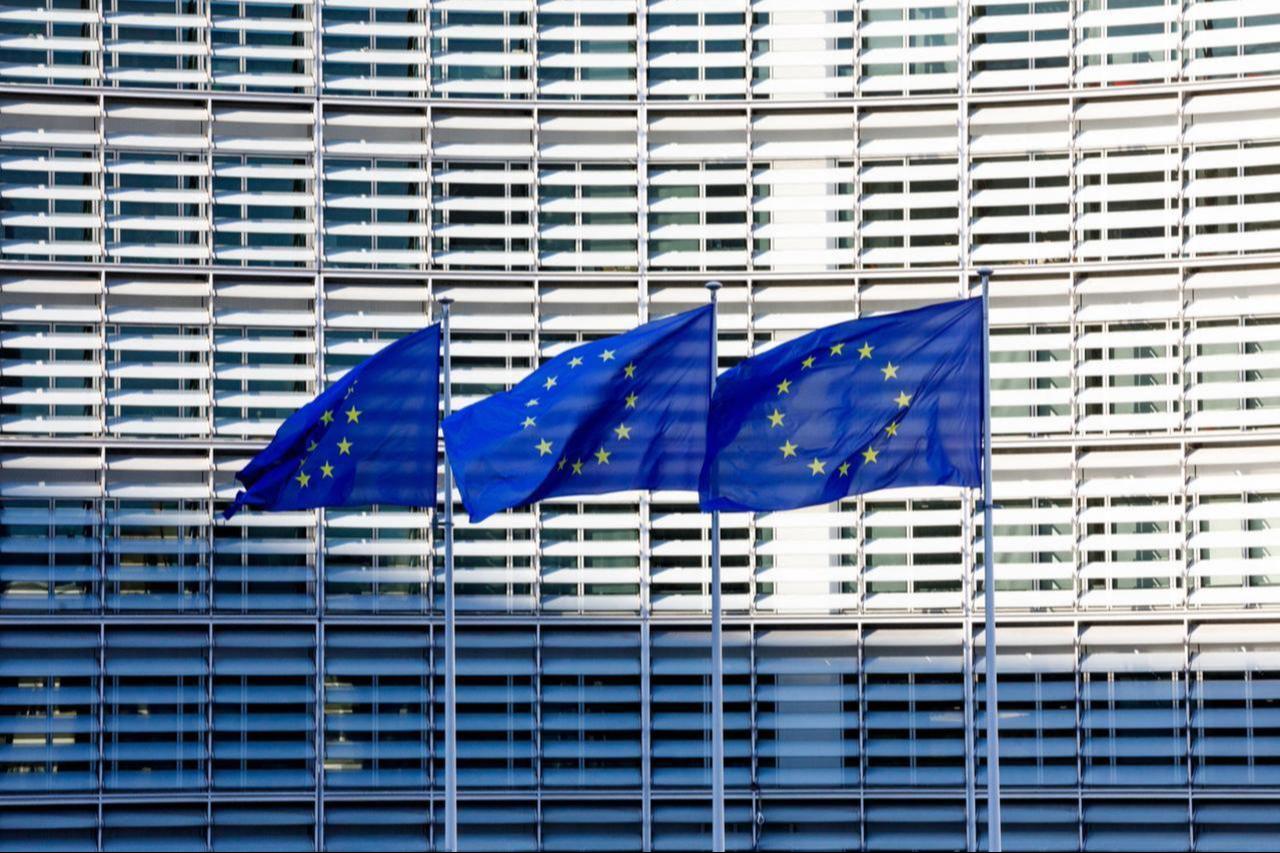
German Chancellor Friedrich Merz called for developing "strategic partnerships" to address new geopolitical challenges during his visit to Ankara on Thursday, marking his inaugural trip to Türkiye as leader of Germany's new coalition government.
"We are entering a new geopolitical phase. Therefore, we must expand our strategic partnerships. We should make even better use of the enormous potential of our relations with Türkiye," Merz said in a social media post as his official program began.
"We can build here on a strong foundation," he added.
Merz formed the new German coalition government in May. His spokesman described the visit as highly important, saying it will provide an opportunity to discuss key bilateral and international topics, as well as closer cooperation in security and foreign policy.

Germany's new coalition government has adopted a more realistic and pragmatic foreign policy since taking office in May, according to foreign policy experts speaking to the state-run Anadolu Agency (AA) on Thursday.
Unlike its predecessor, the government wants closer political dialogue and cooperation with Türkiye across key areas.
Deputy government spokesman Sebastian Hille described Türkiye as a "strategically important" NATO ally, saying the two countries have "many common issues to discuss," particularly in foreign and defense policy.
Ewald Koenig, a senior German political analyst, said Merz has made strengthening Europe his top foreign policy priority amid global uncertainties.
"I think there's really a change in relations between Germany and Türkiye," Koenig told Anadolu ahead of the visit, adding, "Chancellor Friedrich Merz will strive for very good relations with Türkiye, although we know there were many ups and downs in the bilateral relations in the past."
Koenig said Merz's foreign policy strategy aims to strengthen the European Union and maintain unity among EU member states amid new challenges, while also enhancing security and defense cooperation with non-EU powers like the United Kingdom and Türkiye.
This renewed outreach stems from growing unease over U.S. President Donald Trump's foreign policy and his "unpredictable" stance toward Europe's defense.
"President Trump is unpredictable. So the only thing that is predictable is that he is unpredictable. You never know what he is saying the next day. And so Europe has to focus on its own power," Koenig said.
"We have to concentrate on a new orientation with the own power and also with the power of the neighbors. And in this field, Türkiye is a real big player. And the German politicians, especially the federal chancellor and the foreign minister, they know it," he added.
"Despite differences on various issues, Koenig said the Merz government is expected to pursue constructive dialogue with Ankara rather than confrontation. Berlin," he added, sees potential for closer cooperation in political, economic, and defense sectors, using "positive engagement" to manage disagreements.

Merz's trip follows Foreign Minister Johann Wadephul's recent visit to Ankara, where he described Türkiye as a "strategic partner" in NATO and pledged Berlin's support for progress in EU-Türkiye relations.
Wadephul said that if Türkiye actively pursues its EU membership ambitions, Germany would be a "reliable and friendly partner" on this path, backing a "positive agenda" that includes steps toward visa liberalization and modernization of the EU-Türkiye customs union.
Koenig acknowledged that full EU membership remains a lengthy process, requiring candidate countries to harmonize their laws with the EU and meet its economic and political criteria on democracy, rule of law, and human rights. He emphasized that both sides would benefit from developing a positive agenda and enhanced cooperation during the accession process.
"I remember very well, many years ago, there was a very good discussion about the EU membership of Türkiye. And I was in favor of it, but I was in the minority in Germany. There is still a lot to do, so we cannot do it overnight. But it would be really very good that we have such progress on both sides to have much power. So I hope one day, it will take a long time, but one day that we have Türkiye as an EU member," Koenig said.

Eckart Cuntz, a former German ambassador to Ankara who served from 2006 to 2011, said recent global developments have greatly increased Türkiye's geopolitical importance and made closer dialogue and cooperation with Ankara essential for Berlin.
"This government, especially under the leadership of Merz and Wadephul, wants to open a new chapter—bilaterally, regarding EU relations with Türkiye, but especially also regarding common foreign and security policy," Cuntz told Anadolu.
"Without Türkiye, you cannot solve so many problems in the world," Cuntz added.
Cuntz said Berlin views Ankara as a key player in resolving regional conflicts, including the ongoing Gaza crisis, saying, "Türkiye played an important role in the ceasefire in Gaza, for the so-called Trump peace plan. I think you could also call it partly a Türkiye peace plan. It will not be possible to accomplish that peace plan without Türkiye. Hamas will never give up their arms unless they have a certain guarantee by Türkiye, for instance."
The veteran diplomat said the German government also recognizes Ankara's importance regarding the Russia-Ukraine war, particularly its efforts to de-escalate the situation and contribute to a diplomatic solution.
"It really appears to be one of the major subjects in our relations, in view of the importance of Türkiye as a player, not only in the Middle East, but also in the wider field, in relations to Russia, Ukraine and so on. And I do think there can be a new chapter in Germany-Türkiye relations," he said.

Cuntz emphasized that Germany-Türkiye relations have always been special, despite occasional political differences and tensions.
Germany remains Türkiye's largest economic and trading partner, and more than 3.5 million Turks living in Germany are also making these relations unique.
He said the new German government's recognition of Türkiye's growing influence offers an opportunity to build on this relationship and expand collaboration in multiple sectors.
One promising field, he noted, is the defense industry, an area where Türkiye has made major advances in recent years. "Türkiye has the strongest armed forces after the United States in NATO. And that's very good. Türkiye is a strong partner in NATO," Cuntz said.
Cuntz described Berlin's support for the sale of Eurofighter Typhoon jets to Türkiye as a positive step. "I think there is still room for development of these relations also between our armed forces. And let's see what could be a concrete output."
"Eurofighters or whatever is going to happen there, or in the European field, the access of Türkiye to SAFE, the EU's financial program for armament. That's something I hope will be possible, but also concrete projects between Turkish and German companies," he concluded.